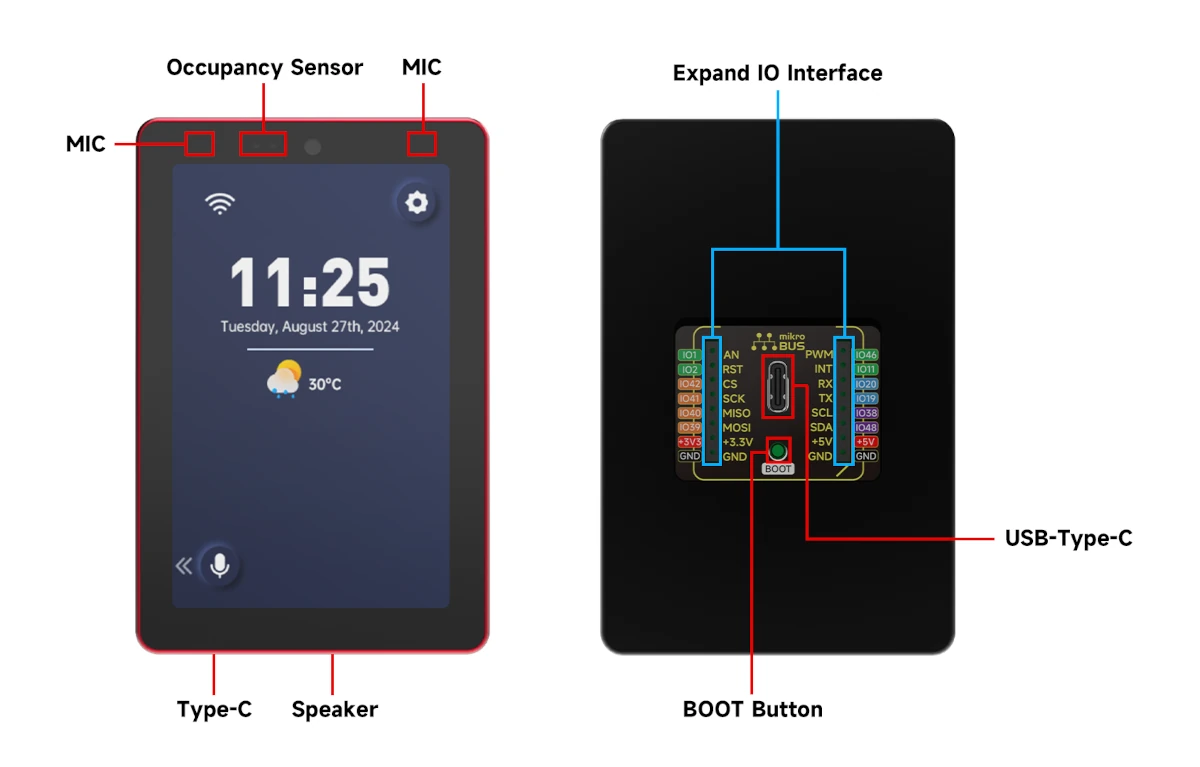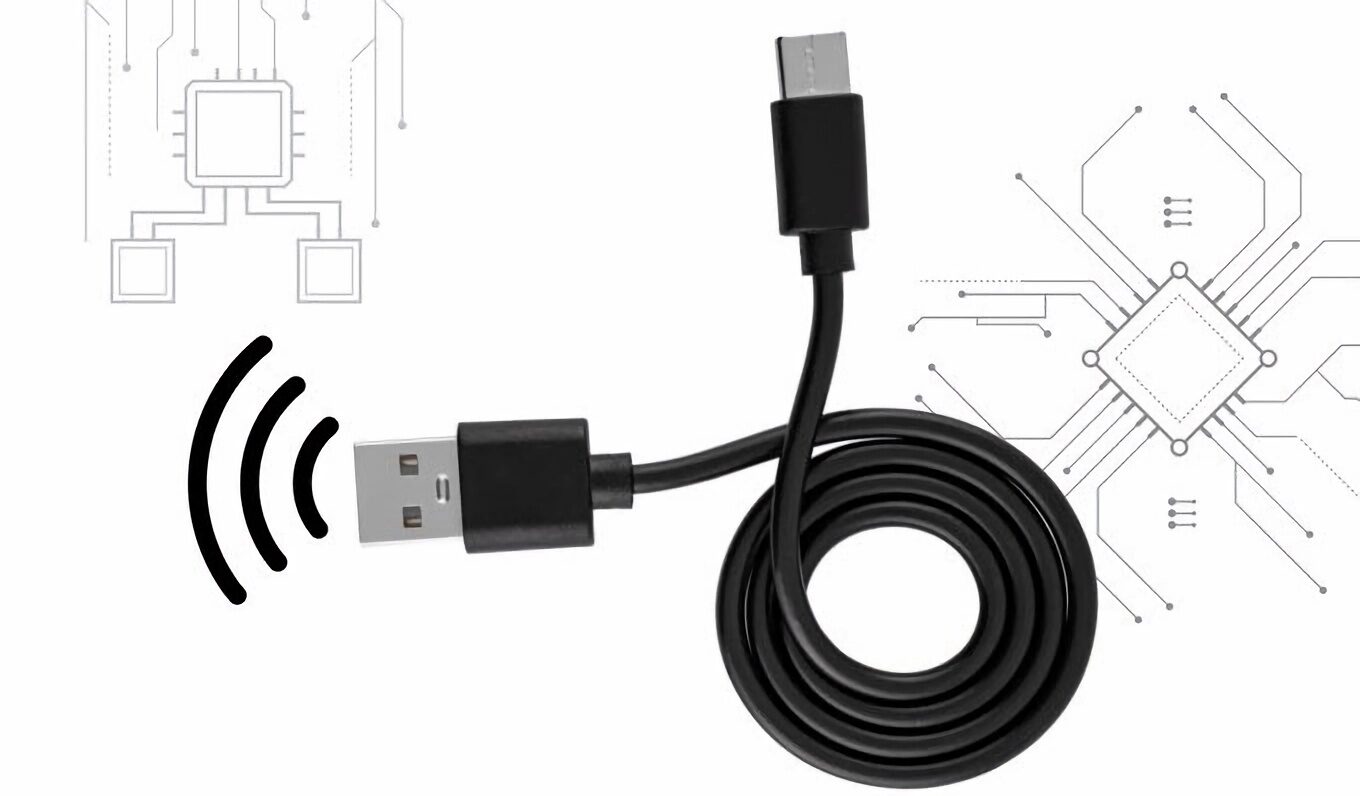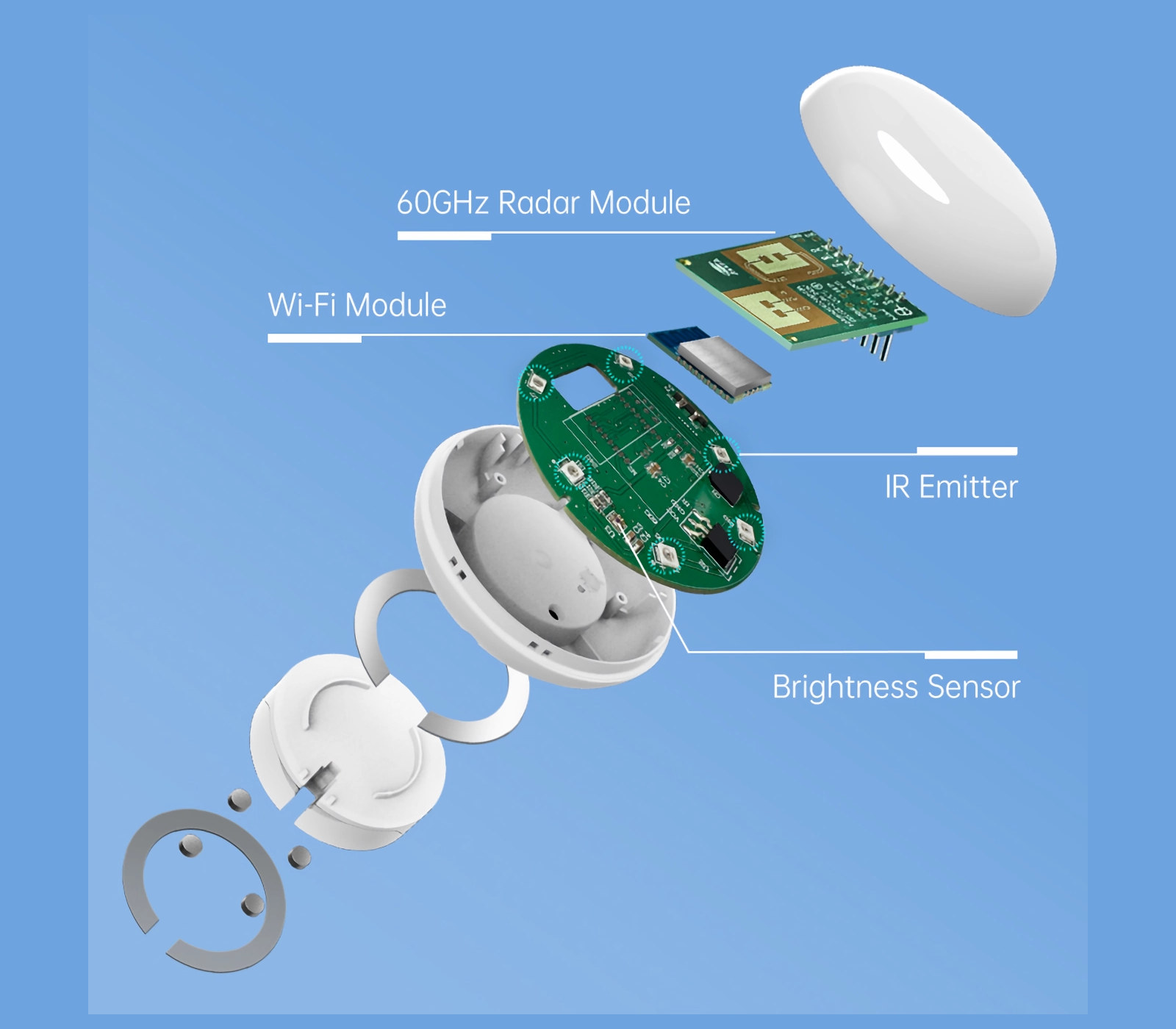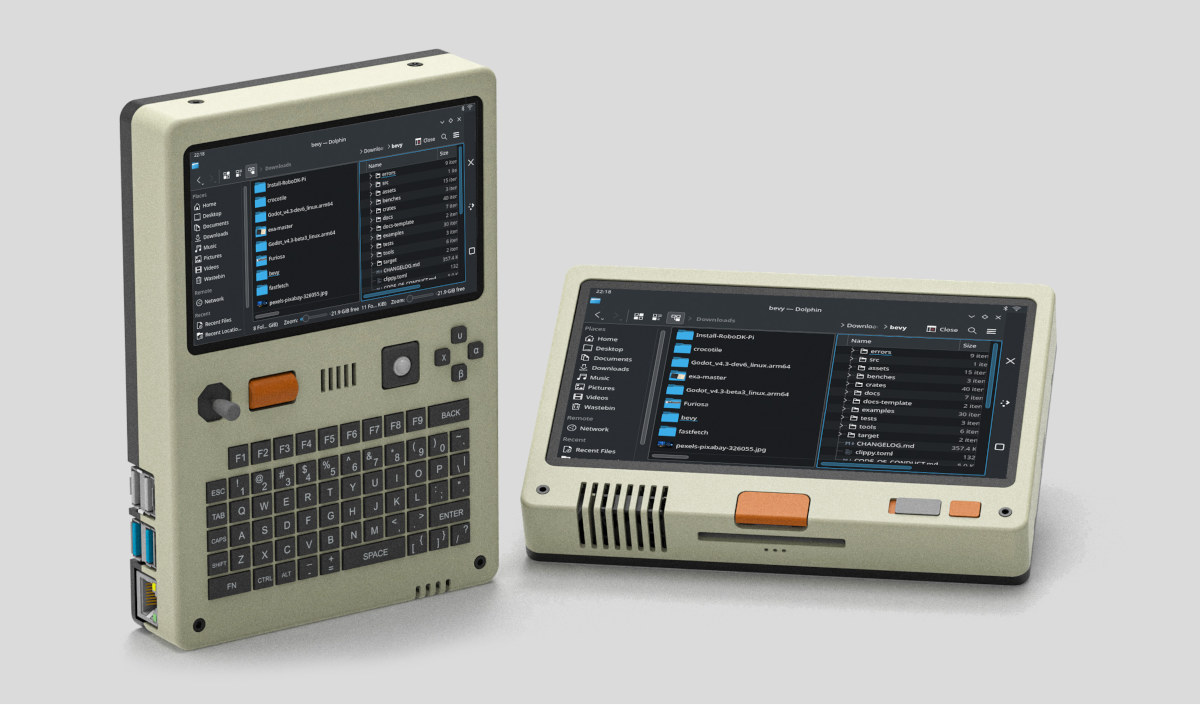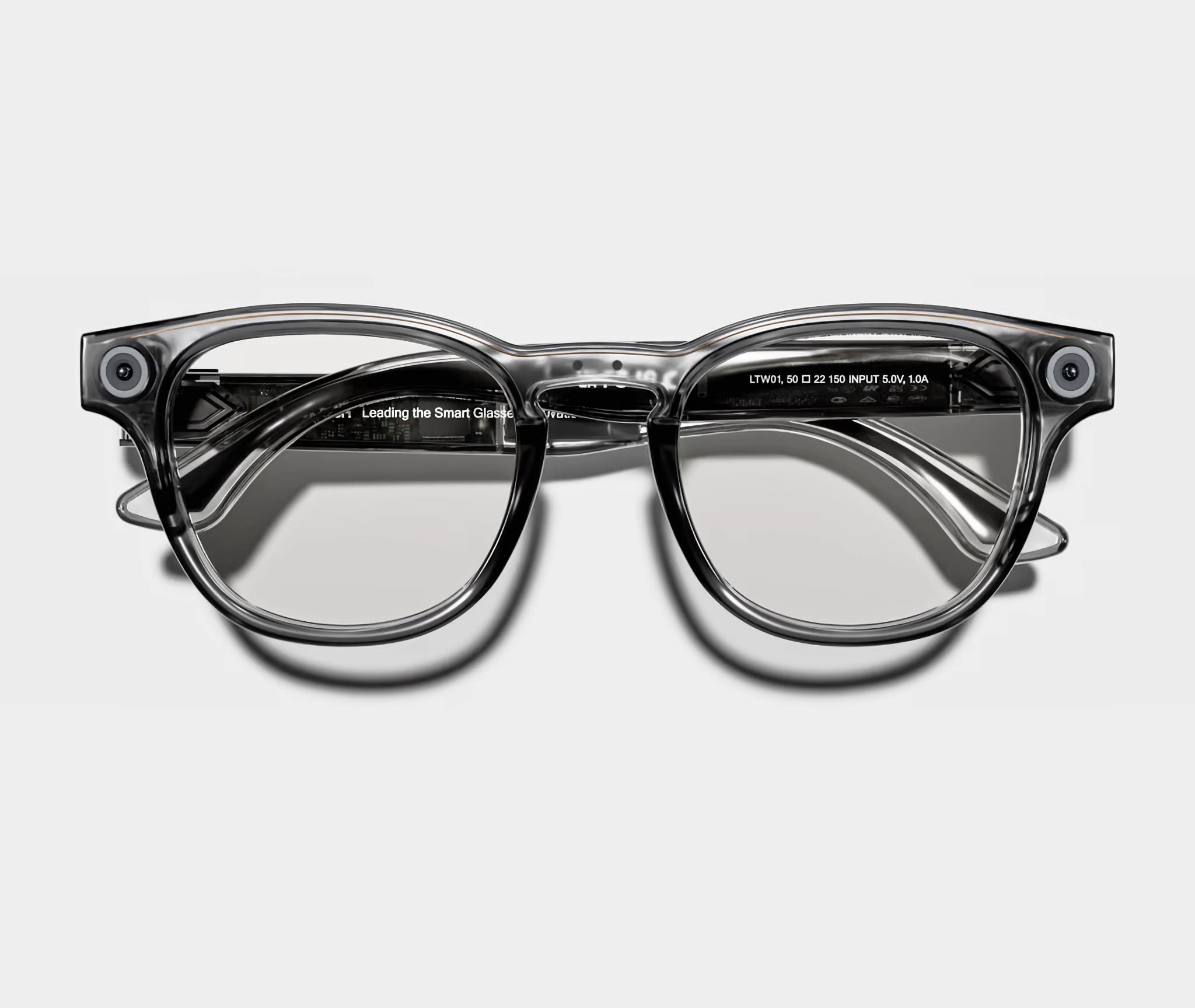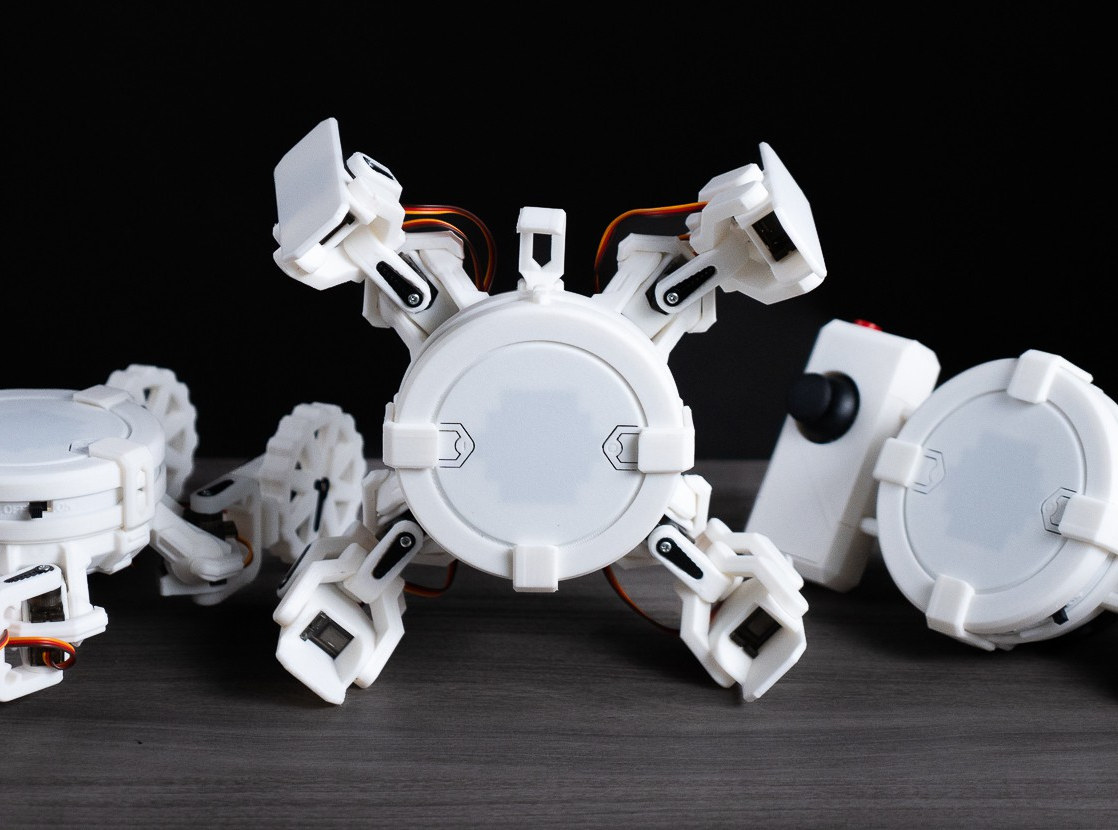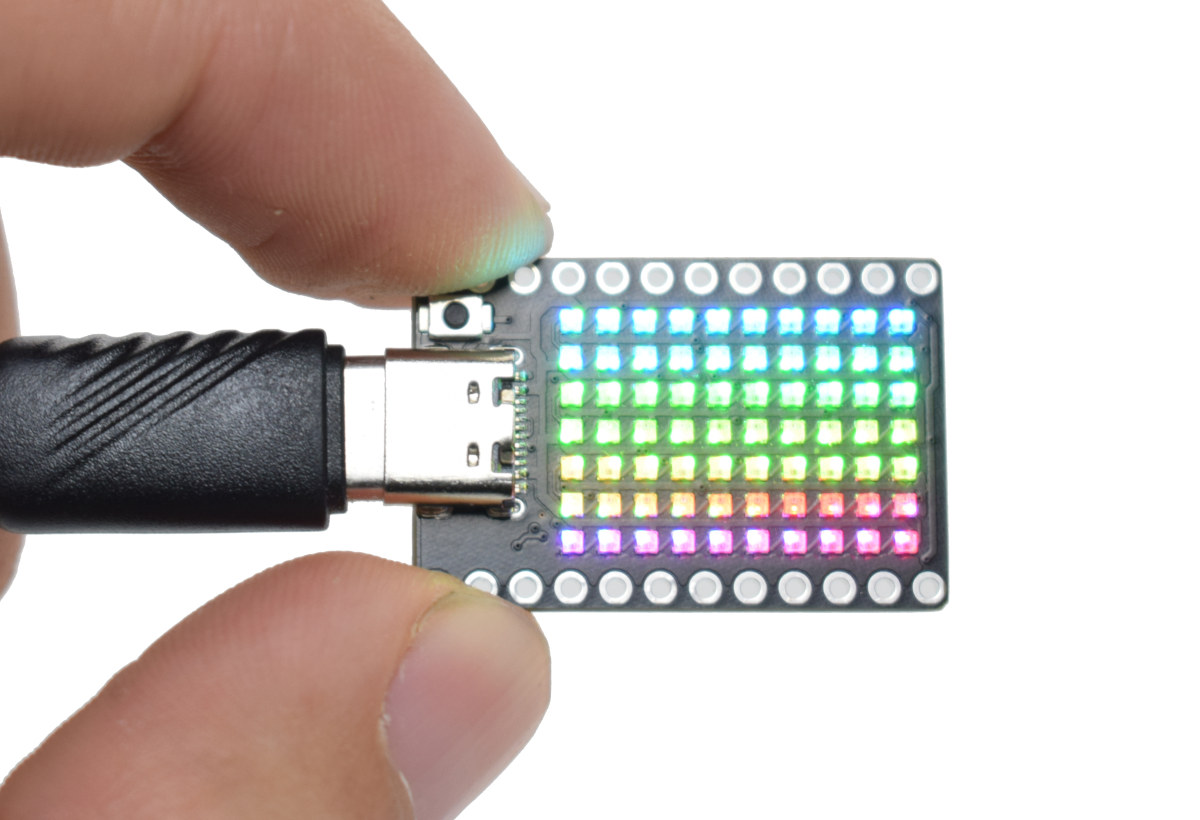Videtronic’s V-Link is a compact solution designed to extend the range of Raspberry Pi MIPI DSI cameras using GMSL2 (Gigabit Multimedia Serial Link v2) technology with up to 15-meter cables. We covered this type of solution in several NVIDIA Jetson Nano development kits and embedded computers, but never for the Raspberry Pi SBC. The V-Link relies on a MAX96717-based MIPI CSI-to-GSML2 board that connects to the MIPI CSI connector on the Raspberry Pi and a MAX96714-based GSML2-to-MIPI CSI board connected to the Raspberry Pi Camera Module. The solution provides an alternative to THine THSER101 Raspberry Pi camera extension kit that works with LAN cables up to 20 meters long. V-Link specifications Transmitter board Analog Devices MAX96717 CSI-2 to GMSL2 Serializer MIPI CSI input connector GSLM2 output connector Receiver board Analog Devices MAX96714 Single GMSL2/GMSL1 to CSI-2 Deserializer GSLM2 input connector MIPI CSI output connector to Raspberry Pi Camera Module Compatibility […]
ESP32 Agent Dev Kit is an LLM-powered voice assistant built on the ESP32-S3 platform (Crowdfunding)
The ESP32 Agent Dev Kit is an ESP32-S3-powered voice assistant that offers integrations with popular LLM models such as ChatGPT, Gemini, and Claude. Wireless-Tag says the Dev Kit is suitable for “95% of AIoT applications, from smart home devices to desktop toys, robotics, and instruments” In some ways, it is similar to the SenseCAP Watcher, but it has a larger, non-touch display and dual mic input. It however does not support local language models. It also features a standard MikroBUS interface for expansion. For voice capabilities, the ESP32 Dev Kit integrates two onboard, noise-reducing microphones and a high-fidelity speaker. The built-in infrared laser proximity sensor detects human proximity and movement for “smart interactive experiences”. ESP32 Agent Dev Kit specifications: MCU – ESP32-S3 dual-core Tensilica LX7 microcontroller @ 240MHz, 8MB PSRAM Storage – 16MB flash Display – 3.5-inch Touchscreen, 480×360 resolution Camera – 5MP OmniVision OV5647 camera module, 120° field of […]
HackCable is a wireless-enabled, USB-C keystroke injection cable powered by ESP32 or RP2040 (Crowdfunding)
HackCable is a wireless-enabled USB-C keystroke injection cable described as the “ultimate tool for cybersecurity enthusiasts and ethical hackers.” powered by the ESP32-S3 or the Raspberry Pi RP2040. The ESP32-S3 version is described as the Wi-Fi Version and offers a built-in Wi-Fi hotspot, remote operation, and master-slave configuration for multiple cables. The Normal Version is a cheaper variant powered by the Raspberry Pi RP2040 microcontroller and built for focused, offline tasks where wireless control isn’t needed. The HackCable promises hardware keylogging, remote control, and master-slave synchronization for multiple cables. We have covered other USB penetration testing tools like the Diabolic Drive and Pendrive S3, but those were USB dongles while the HackCable looks like a standard USB Type-A to USB Type-C cable. There is very little information about the product, other than the microcontrollers that power it. It is likely running SuperWiFiDuck or some other USB rubber ducky program. It […]
Home Assistant-compatible 60GHz mmWave radar sensor features a built-in IR blaster (Crowdfunding)
The eMotion Ultra is a Home Assistant-compatible 60GHz mmWave radar presence sensor with a built-in IR blaster with a 15-meter range, a brightness sensor, and a temperature/humidity sensor. It is powered by an Armv8-M KM4 microcontroller with built-in Wi-Fi connectivity and is targeted at simplifying complex smart home setups. The eMotion Ultra 60GHz mmWave radar presence sensor module is reported to be able to “cover up to 40 square meters (430 square feet) using just one device.” It can be configured for up to 4 zones with personalized automations for each zone. The exact Armv8-M KM4 module used isn’t named but is likely based on a Realtek RTL8720CM wireless SoC or other Realtek Ameba microcontroller. Potential applications include security management, lighting automation, home climate control, energy management, and rental property management. We have seen similar presence sensors such as the RoomSense IQ, Seeed Studio’s mmWave fall detection kit, SONOFF SNZB-06P, […]
Pilet is a Raspberry Pi 5-powered modular, portable computer with 5-inch or 7-inch display, optional built-in keyboard (Crowdfunding)
Pilet is a modular, open-source hardware, portable computer designed for the Raspberry Pi 5 SBC, and equipped with a choice of displays, keyboards, and an optional battery module that can last for up to 7 hours. Two models are available: the Pilet 5 with a 5-inch display, an integrated keyboard, a trackball, a scroll wheel, a navigational switch (D-Pad), and game buttons, and the Pilet 7 with a larger 7-inch display and support for detachable modules such as a keyboard, gamepad, or deck. Pilet specifications: Supported SBC – Raspberry Pi 5 Storage – MicroSD card, NVMe SSD via module Display Pilet 5 – 5-inch IPS MIPI DSI display with 1280×800 resolution, capacitive touch screen. Pilet 7 – 7-inch IPS MIPI DSI display with 1280×800 resolution, capacitive touch screen. Video Output- 2x micro HDMI ports Networking Gigabit Ethernet RJ45 port 802.11ac WiFi 5 and Bluetooth 5.0 Optional LTE cellular via module […]
Looktech’s AI-powered smart glasses offer a 14-hour battery life, 13MP camera, and linear audio for $209 and up (Crowdfunding)
Looktech AI Glasses are AI-powered smart glasses with a “privacy-focused design” and several lens options. They are similar to Meta’s Ray-Ban smart glasses but support GPT-4, Claude, and Gemini instead of Meta AI. Like Meta’s smart glasses, the Looktech AI Glasses incorporate headphones, a camera, and an AI model for a hands-free experience and personalized AI assistance. According to Looktech, the smart glasses can track calories, find recipes, set reminders, and perform image searches. The in-built 13MP camera can be used to capture high-res images and videos and the open-ear dual speakers provide “rich, spatialized immersive audio while keeping you aware of your surroundings.” Looktech has given some hardware specifications for the product but the list is a bit sparse. We have covered the much cheaper but underpowered LILYGO T-Glass. Although there are no promises of a physical AI agent, the Looktech glasses are similar to the M5Stack’s Module LLM […]
CYOBot v2 ESP32-S3-based open-source modular robotics platform supports up to 16 servos (Crowdfunding)
Create Your Own Bot (CYOBot) v2 is an open-source, modular robotics platform for students, educators, hobbyists, and future engineers based on the ESP32-S3 microcontroller and featuring up to 16 servo motors for complex control. The CYOBot v2 is a follow-up to the previous quadrupedal robotic platform from the same company. It adds new features such as a modular design, an upgrade to the ESP32-S3 chip, more motor channels, and an expansion block with more peripherals. It also supports integrating AI systems, such as ChatGPT, for added functionality. The CYOBot supports up to three configurations via the CYOBrain — which powers the robotics platform and controls the servo motors — and separate 3D-printed components. The CYOBot Crawler is a four-legged robot powered by eight 180-degree servo motors. The CYOBot Wheeler form factor features four 360-degree motors linked to wheels at the end of each leg and is essentially a hybrid between […]
Nova open-source hardware Raspberry Pi RP2040 board features a 70 RGB LED matrix (Crowdfunding)
Vcc Labs’ Nova is a tiny, open-source hardware Raspberry Pi RP2040 development board with a USB-C port, a 70 (7×10) addressable RGB LED matrix, and two 12-pin GPIO headers for expansion. It can be used for wearables, mini-displays, interactive art, fun games, and more. Nova specifications: MCU – Raspberry Pi RP2040 dual-core Cortex-M0+ microcontroller @ up to 133 MHz with 264KB SRAM Storage – 2MB QSPI flash “Display” – 7×10 WS2812 addressable RGB LEDs, each measuring just 1x1mm USB – USB Type-C port for power, data, and programming Expansion – 2x 12-pin header with 20x GPIO, 2x SPI, 2x I2C, 2x UART, 4x ADC, Vin, 5V, 3.3V, and GND Misc – Reset and BOOT buttons Power Supply 5V via USB-C port 7V to 18V via Vin pin Power consumption – 9 Watts with all LEDs at full brightness Dimensions – 30.48 x 20.32 mm (PCB only) Weight – 4.76 grams […]



